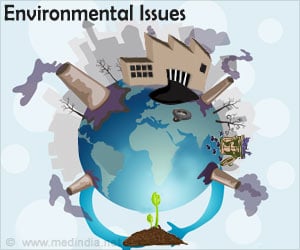- Environmental and Health Impacts of Air Pollution: A Review. Front Public Health - (https://www.ncbi.nlm.nih.gov/pmc/articles/PMC7044178/)
- Recent Insights into Particulate Matter (PM2.5)-Mediated Toxicity in Humans: An Overview - (https://www.ncbi.nlm.nih.gov/pmc/articles/PMC9223652/)
- Nitrogen Dioxide Toxicity - (https://www.ncbi.nlm.nih.gov/books/NBK554539/)
- Medical Management Guidelines for Sulfur Dioxide - (https://wwwn.cdc.gov/TSP/MMG/MMGDetails.aspx?mmgid=249&toxid=46#.)
- Carbon Monoxide Poisoning: Pathogenesis, Management, and Future Directions of Therapy - (https://pubmed.ncbi.nlm.nih.gov/27753502/)
- Health Effects of Ozone Pollution - (https://www.epa.gov/ground-level-ozone-pollution/health-effects-ozone-pollution)
- Exposure to Volatile Organic Compounds in Paint Production Plants: Levels and Potential Human Health Risks - (https://pubmed.ncbi.nlm.nih.gov/36850986/)
- Air pollution and health - (https://pubmed.ncbi.nlm.nih.gov/12401268/)
About
Air pollution poses a significant threat to human health, with far-reaching consequences for both short-term and long-term well-being. From respiratory ailments to cardiovascular diseases, the impact of polluted air extends across various bodily systems. Understanding the effects of air pollution on health is crucial for implementing effective measures to mitigate its harmful effects.
What is Air Pollution?
Air pollution refers to the presence of harmful substances in the air, resulting from human activities such as industrial emissions, vehicle exhaust, agricultural practices, and the combustion of fossil fuels for energy production. These pollutants encompass a wide range of chemical compounds and particles, each with its own detrimental effects on human health and the environment(1✔ ✔Trusted Source
Environmental and Health Impacts of Air Pollution: A Review. Front Public Health
Go to source).
Did You Know?
Inhaling polluted air can increase the risk of heart attacks, strokes, and even dementia, highlighting the urgent need for cleaner air regulations and public awareness.Types of Air Pollutants
Particulate Matter (PM):
Particulate matter consists of tiny particles suspended in the air, varying in size from coarse dust to fine particles. PM10 and PM2.5 refer to particles with diameters of 10 micrometers or less and 2.5 micrometers or less, respectively. These particles can penetrate deep into the respiratory system, causing respiratory infections, exacerbating asthma, and increasing the risk of cardiovascular diseases(2✔ ✔Trusted SourceRecent Insights into Particulate Matter (PM2.5)-Mediated Toxicity in Humans: An Overview
Go to source).
Nitrogen Dioxide (NO2):
Nitrogen dioxide is a gas emitted from combustion processes, primarily from vehicles and industrial facilities. Prolonged exposure to NO2 can irritate the airways, leading to respiratory symptoms such as coughing, wheezing, and shortness of breath(3✔ ✔Trusted SourceNitrogen Dioxide Toxicity
Go to source). It also contributes to the formation of ground-level ozone and fine particulate matter, exacerbating air quality issues.
Sulfur Dioxide (SO2):
Sulfur dioxide is produced by burning fossil fuels containing sulfur, such as coal and oil. Inhalation of SO2 can irritate the respiratory tract, causing breathing difficulties, chest tightness, and bronchoconstriction(4✔ ✔Trusted SourceMedical Management Guidelines for Sulfur Dioxide
Go to source). It also reacts with other pollutants in the atmosphere to form fine particulate matter and secondary aerosols, further worsening air quality.
Carbon Monoxide (CO):
Carbon monoxide is a colorless, odorless gas produced by the incomplete combustion of carbon-containing fuels. It interferes with the body's ability to transport oxygen in the bloodstream, leading to symptoms such as headaches, dizziness, and fatigue(5✔ ✔Trusted SourceCarbon Monoxide Poisoning: Pathogenesis, Management, and Future Directions of Therapy
Go to source). Prolonged exposure to high levels of CO can be life-threatening, causing carbon monoxide poisoning and even death.
Ozone (O3):
Ground-level ozone is formed when pollutants such as nitrogen oxides and volatile organic compounds react in the presence of sunlight. While ozone in the upper atmosphere protects against ultraviolet radiation, ground-level ozone is a respiratory irritant and a major component of smog. Exposure to ozone can exacerbate respiratory conditions, trigger asthma attacks, and reduce lung function(6✔ ✔Trusted SourceHealth Effects of Ozone Pollution
Go to source).
Volatile Organic Compounds (VOCs):
Volatile organic compounds are emitted from various sources, including vehicle exhaust, industrial processes, and household products such as paints and solvents. These compounds can react with other pollutants in the atmosphere to form ground-level ozone and fine particulate matter. Prolonged exposure to VOCs has been linked to respiratory irritation, neurological effects, and increased cancer risk(7✔ ✔Trusted SourceExposure to Volatile Organic Compounds in Paint Production Plants: Levels and Potential Human Health Risks
Go to source).
Impact on Human Health
The inhalation of air pollutants can have profound effects on human health, affecting respiratory function, cardiovascular health, neurological well-being, and overall quality of life. Vulnerable populations, such as children, the elderly, and individuals with pre-existing medical conditions, are particularly susceptible to the adverse effects of air pollution.
Effects of Air Pollution on Health
The effects of air pollution on health are diverse and multifaceted, impacting various organs and bodily systems. Among the most significant health consequences of air pollution are respiratory diseases, cardiovascular disorders, and neurocognitive impairments.
Certain groups are more vulnerable to the adverse health effects of air pollution, including children, the elderly, pregnant women, and individuals with pre-existing medical conditions. Children, whose respiratory and immune systems are still developing, are particularly susceptible to the effects of air pollution, which can impair lung function and increase the risk of respiratory infections.
Short-Term Health Effects of Air Pollution
Short-term exposure to air pollution can lead to immediate health issues, manifesting as respiratory symptoms, cardiovascular complications, and neurobehavioral disturbances. The severity of health effects resulting from short-term exposure to air pollution depends on several factors, including the concentration of pollutants in the air, the duration of exposure, and individual susceptibility. High levels of pollutants, combined with prolonged exposure, can increase the risk of experiencing more severe symptoms and complications(8✔ ✔Trusted Source
Air pollution and health
Go to source).
Respiratory Symptoms:
Inhalation of air pollutants can irritate the respiratory tract, leading to symptoms such as coughing, throat irritation, chest tightness, and shortness of breath. These symptoms are particularly prevalent among individuals with pre-existing respiratory conditions such as asthma and chronic obstructive pulmonary disease (COPD).Cardiovascular Effects:
Air pollution has been linked to an increased risk of cardiovascular diseases, including heart attacks, strokes, and ischemic heart disease. Exposure to pollutants like fine particulate matter (PM2.5) and nitrogen dioxide (NO2) can trigger inflammatory responses, oxidative stress, and endothelial dysfunction, contributing to the development of cardiovascular disorders.Neurocognitive Impairments:
Emerging research suggests that air pollution may adversely affect cognitive function and mental health. Exposure to pollutants such as particulate matter and ozone has been associated with neuroinflammation, oxidative damage, and neurodegenerative diseases like Alzheimer's and Parkinson's. Additionally, air pollution has been linked to increased rates of anxiety, depression, and stress-related disorders.While the short-term health effects of air pollution are concerning, they represent only a fraction of the broader impact on public health. Long-term exposure to polluted air can have far-reaching consequences, contributing to chronic diseases, premature mortality, and diminished quality of life.
To mitigate the health risks associated with short-term exposure to air pollution, individuals can take proactive measures such as limiting outdoor activities during periods of poor air quality, using indoor air purifiers, and wearing respiratory protection when necessary. Government agencies and policymakers also play a crucial role in implementing regulations to reduce emissions and improve air quality standards in communities.
In conclusion, the effects of air pollution on health are significant and multifaceted, encompassing respiratory, cardiovascular, and neurological impairments. Addressing this global health challenge requires concerted efforts to reduce emissions, improve air quality standards, and promote sustainable practices that safeguard both human health and the environment.











